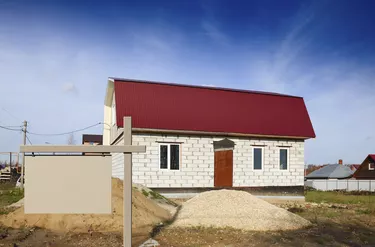
It's not unusual to experience a period of vacancy when you first put your rental on the market or right after a tenant leaves. Rental expenses you incur during this time period are deductible as long as you're actively trying to rent or sell the property. You may use the rental for personal use during vacancies, but it reduces the amount of expenses you can deduct and may endanger its status as a rental property.
Eligible Vacancy Expenses
Video of the Day
Even if no one is living in your rental, you still incur some expenses. The IRS defines vacancy expenses as the costs of managing, conserving or maintaining the property while it's vacant. You have to pay property tax bills and make interest payments on the mortgage whether you have a tenant or not. The home depreciates during that time period, and you can claim depreciation expense on the property -- usually on an annual basis. Homeowner association fees, legal fees, advertising expense and landscaping are also incurred and are deductible when your rental is vacant.
Video of the Day
Deducting Vacancy Expenses
As long as your house is being held out for rent or sale, you can continue to deduct expenses while your rental is vacant. For example, if you list a property for rent in January but don't find a tenant until February, January expenses are deductible. The same goes for gaps in tenancy. You cannot, however, deduct expenses if you're not actively trying to rent the property. So if the property isn't in a rentable condition yet or you don't have it listed for rent or for sale anywhere, you can't deduct expenses during that time period.
Vacancies and Rental Status
If you have rental vacancies and you use the property for personal use, that use can affect its status as a rental property. If you use a vacation rental yourself for a couple weeks a year or let friends and family use it for free, that's personal use. To be considered a rental property, your personal use of a property can't exceed the greater of 14 days or 10 percent of the days the unit is rented year-round. If your rental property is rented for 200 days a year, you can use it up to 20 days for personal purposes. If it's rented 150 days a year, you can only use it for 15 days.
Calculating Expenses
As long as your property is listed for rent or for sale during vacancies and you don't use it personally, you can deduct 100 percent of rental expenses that you incur. Calculating expenses is a bit trickier if it's vacant and you use it for personal purposes. In this situation, you can only deduct the percentage of expenses that correspond with the business use of the property. For example, say that your property is rented 200 days out of the year and you use it for 10 days. You may deduct 95 percent (200 days divided by 210 days) of your total rental expenses.